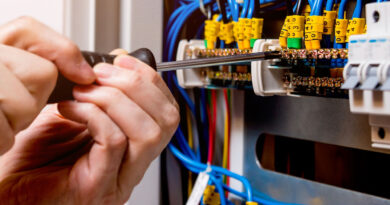The Best Home Phone Service: A Comprehensive Guide
In today’s digital age, many people rely heavily on mobile phones and internet-based communication. However, there’s still a significant demand for traditional home phone services. Whether you live in a rural area with limited mobile coverage or simply prefer the stability and reliability of a landline, finding the best home phone service for your needs is essential. This article will help you understand what to look for in a home phone service and guide you in making an informed choice.
Why Choose a Home Phone Service?
While mobile phones and internet services have become essential in most homes, a landline can still offer benefits that are hard to overlook. For one, home phone services tend to have more stable and clearer connections, especially in areas with poor mobile reception. In case of emergencies, home phones are often more reliable than cell phones, as they don’t depend on batteries and tend to function even during power outages (with the right equipment). Additionally, home phone services often come with features such as voicemail, caller ID, and call blocking, which can make communication more convenient.
Types of Home Phone Services
When searching for the best home phone service, it’s important to know the different options available. Home phone services typically fall into three main categories:
- Landline Phone Service
This is the traditional home phone service that uses copper wires to provide a connection to the telephone network. While landline services are becoming less common, they are still reliable in many areas. They offer clear call quality and typically come with basic features like voicemail and caller ID. One advantage of landline services is that they often work during power outages, as they don’t require an electrical connection. - VoIP (Voice over Internet Protocol)
VoIP services allow you to make phone calls over the internet. Instead of using traditional copper wires, VoIP converts your voice into data packets and sends them over the internet. VoIP services are becoming increasingly popular due to their affordability and flexibility. Many VoIP services offer features like unlimited calling, voicemail, call forwarding, and even video calls. VoIP can be a good option if you already have a strong internet connection. - Cellular Home Phone Service
Some mobile carriers offer home phone services that use cellular signals to make calls. These services work through a base station that connects to the nearest mobile tower, which then provides the phone service. The main advantage of cellular home phone services is that they often come with lower prices and allow you to avoid using a traditional landline or internet connection. However, they are more susceptible to call quality issues due to weak signal strength.
Factors to Consider When Choosing the Best Home Phone Service
Choosing the best home phone service requires considering several factors to make sure you pick the right one for your needs. Below are some key aspects to keep in mind:
- Call Quality
One of the most important aspects of any phone service is the quality of the calls. A poor connection can lead to dropped calls, distorted audio, and frustration. Landline services generally provide the clearest call quality, followed by VoIP services. Cellular services may experience fluctuations in call quality depending on your location and the strength of the mobile signal. - Features and Add-Ons
The best home phone service should come with a variety of features that make communication easier. Look for services that offer voicemail, caller ID, call waiting, call forwarding, and call blocking. Some services also offer advanced features like multi-line support, video calling, and integration with smart home devices. - Cost
While home phone services are often affordable, the prices can vary significantly depending on the provider and the features included in your plan. Some services have low monthly fees but charge extra for features like international calling or additional lines. It’s essential to carefully review the costs and determine if the plan you’re considering fits your budget. - Reliability
Reliability is crucial when it comes to home phone service. You want a service that you can count on, especially in emergencies. Landline phones are typically the most reliable since they don’t rely on electricity or internet connections to work. VoIP and cellular services may experience interruptions if there are issues with your internet or mobile network. - Customer Support
Look for a service provider that offers excellent customer support. In the event of an issue with your phone service, you want a company that is easy to contact and provides prompt solutions. Check customer reviews or ratings of the provider’s customer service to gauge their responsiveness. - International Calling
If you make international calls often, consider looking for a service that offers affordable international calling rates or unlimited international calling. VoIP services, in particular, are known for offering low-cost or even free international calls to many destinations. - Installation and Setup
Depending on the type of service you choose, the installation process can vary. Traditional landline services usually require a technician to set up the connection, while VoIP services may only require a simple internet connection and a device such as a router or adapter. Cellular home phone services often involve minimal setup, as they simply require a base station to be connected to your home network.
Conclusion
Finding the best home phone service depends on your specific needs and preferences. Whether you choose a traditional landline, a modern VoIP service, or a cellular home phone service, it’s important to consider factors like call quality, reliability, features, and cost. By carefully evaluating your options, you can find the home phone service that fits your lifestyle and ensures reliable communication for years to come.




